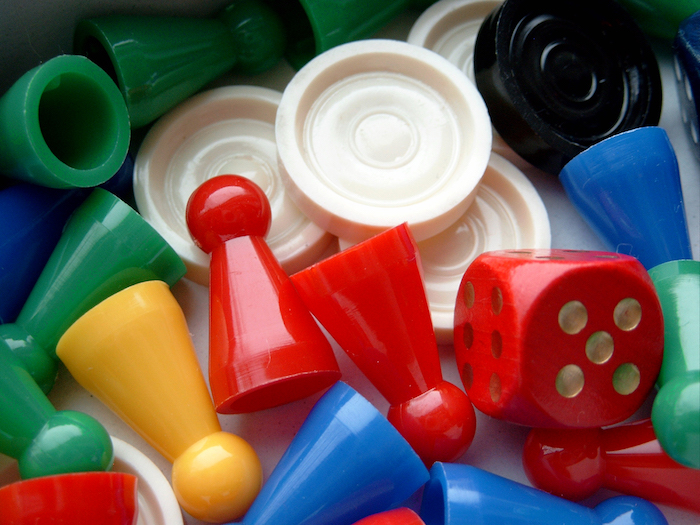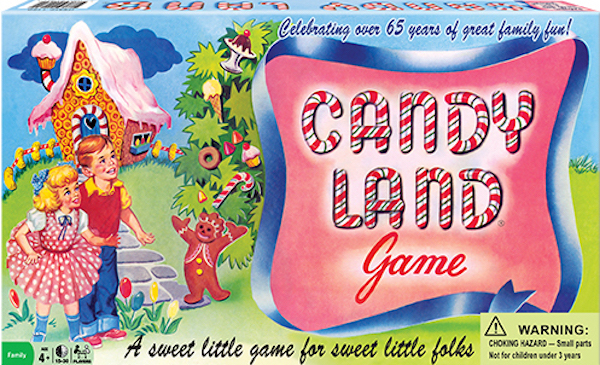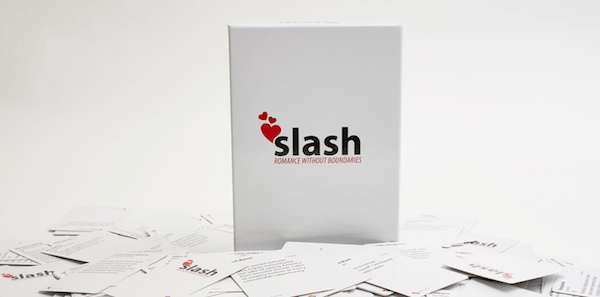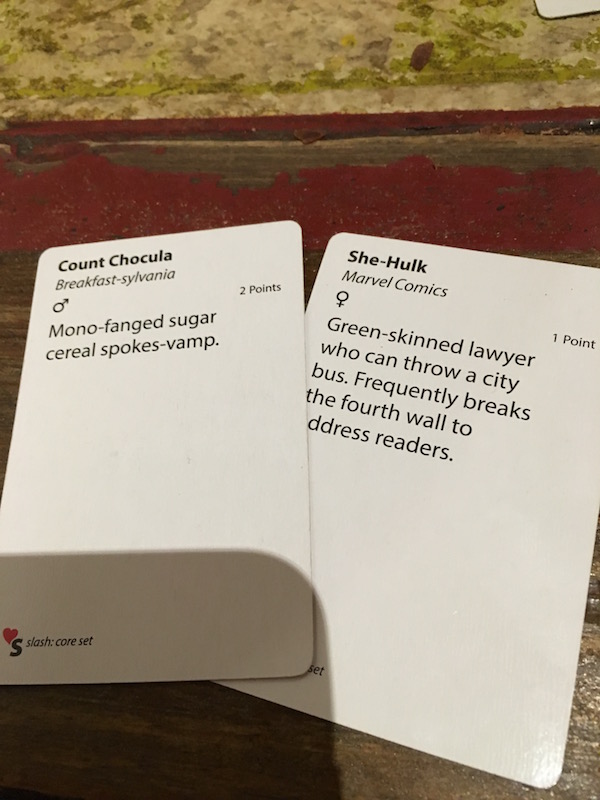What makes a game fun for you?
I was in Austin last weekend (thanks again for the invite, Atheist Community of Austin!), staying with Russell and Lynnea Glasser. We spent a lot of time talking about games, what games we do and don’t like, what makes a game fun or not-fun for us. (We also played an awesome game of Slash.*) And I’ve been thinking about what qualities I look for in a game.
For games I play in person with people, I like games that can be dropped in and out of fairly easily. If someone walks by and thinks the game looks fun, I like to be able to deal them in; if someone needs to take a bathroom break or has to leave early, I don’t want them to feel like they’re disrupting the game. (Some of this bias comes from the fact that much of my game-playing happens at the Godless Perverts Social Club, where people often arrive late, leave early, circulate to socialize, or even switch games.)
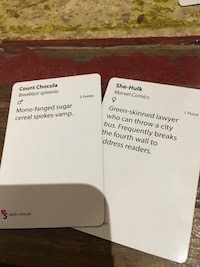
(EDIT: Michael Dodd on Facebook said something that perfectly encapsulates what I mean when I say I want a not-so-competitive game: “I have a regular game night with good friends. One of my main criteria for a game is that it’s fun to play even when you’re not winning. I know this depends heavily on the attitude you bring into the game, but there it is.” Yes. That.)
I don’t like games where you have to count cards or remember what’s been played. I want to be able to figure out what to do based on what’s on the table, now. And I like games that don’t take too long to learn, and don’t take too long to play. Again, there are exceptions — I’m very fond of Chrononauts, a time-travel game that took me ages to figure out what I was even doing — but they’re rare.
For games I play on my phone or other devices, my criteria are very different. I have one large, deal-breaker qualification: I want my device games to be solo. I DO NOT want them to be multi-player or social. There’s a joke I often make about this: The whole reason I play phone games is that hell is other people. I obviously don’t think that (mostly), but I am very introverted, and I’m getting more so as I get older. I find human interaction with anyone other than my closest friends to be valuable but ultimately tiring. One of the main reasons I play games on my phone is to create a mental space I can withdraw in for a while.
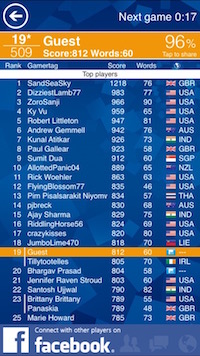
I also want my device games to not take very long. I often play them when I’m killing time waiting for things (like waiting in line for coffee), when I’m taking a break from work, or when I’m getting ready to go to sleep. I don’t want to have to stop a game and re-start it and remember where I left off, just because my coffee order is up.
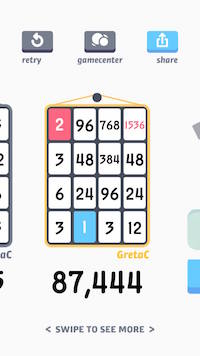
And I realize this may be an unpopular opinion, but I’m going to say it anyway: For reasons I can’t fully articulate, I hate, hate, HATE Tetris. I can see the appeal, but playing it makes me anxious, frustrated, and actually angry.
So what makes a game fun for you? And what makes it not fun? What are your preferences — and your deal=breakers?
*I still think Rosebud the Sled would have made a better pairing for Bella Swan. Stiff, wooden, not very original, but somehow the object of obsession of someone far more interesting — these two are made for each other.
Frivolous Fridays are the Orbit bloggers’ excuse to post about fun things we care about that may not have serious implications for atheism or social justice. Any day is a good day to write about whatever the heck we’re interested in (hey, we put “culture” in our tagline for a reason), but we sometimes have a hard time giving ourselves permission to do that. This is our way of encouraging each other to take a break from serious topics and have some fun. Check out what some of the other Orbiters are doing!


